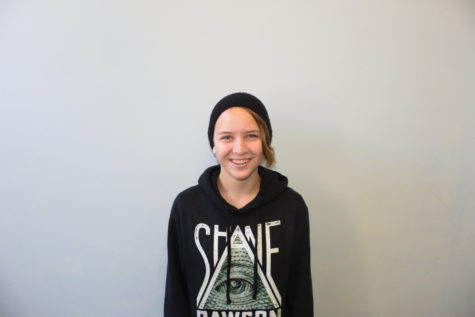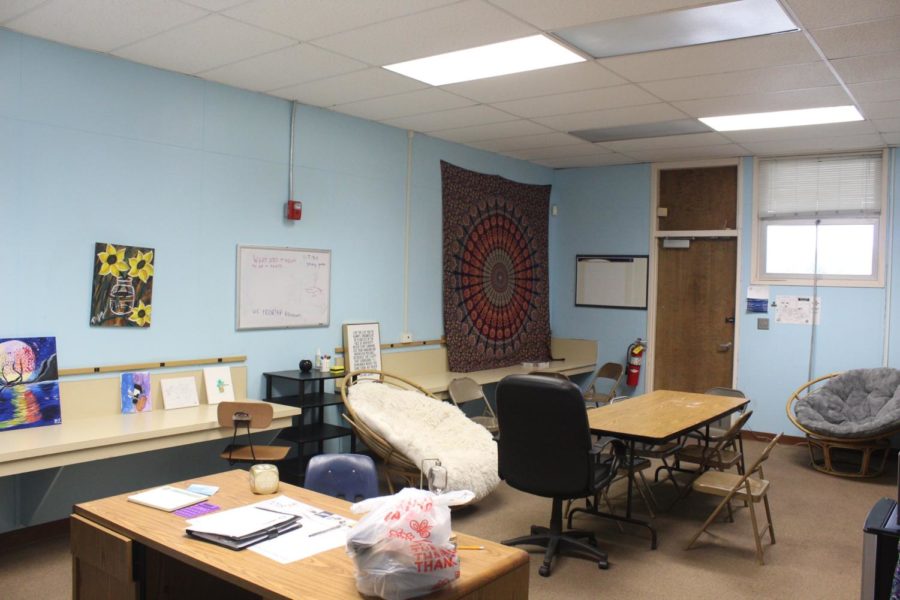Seeking Emotional Support Through the School System
Cam High’s Wellness Center, run by Ms. Ida Young, provides support to students who need help.
As depression, anxiety, and other mental health disorders have become progressively common in teenagers, one potential source of support is professional help offered through the school system.
At Cam High, there are multiple professionals that students can visit when seeking help. The first is Mr. Kevin Ham, a school psychologist, who works mostly with student mental health assessments, but also assists those in need.
“There is a group [at Cam High] with depression and anxiety. I definitely deal with a lot of that. Many of those students are going through situational issues, like breaking up with their boyfriend and girlfriend.” Ham said. Students tend to rely on their friends for help as opposed to certified professionals — often because they are unaware there is someone on campus who can help. Ham is often available to talk in A2 when he is not out doing mental health assessments.
“A lot of students don’t know there’s a psychologist who can help,” Ham said, “Students need to be proactive and seek help — they have to be willing to help themselves, too.”
According to many students like Landon d’Huart, freshman at Cam High, the reason many students do not seek help through the school system is because talking to an adult is daunting.
“Students might be afraid to talk to an adult because they might get in trouble if they say something wrong,” d’Huart said. For example, some students turn to using marijuana and other recreational drugs. “If they do something wrong and try to talk about it, they’ll get in trouble. Or, they won’t tell the full truth, which doesn’t help them at all,” said d’Huart.
Ms. Detra Young, Student Intervention Specialist at Cam High, is one of the major players in keeping up student morale. “I provide support to students here on campus,” Young said. “I work to address social and academic needs, and the issues teachers and counselors don’t usually have time to work on.”
Everything a student discusses with Young is confidential, unless it involves physical violence between students. The confidentiality agreement also includes substance-abuse issues, which remains confidential between Young and the student. Young believes that the entire wellness center is an extremely useful resource for students no matter the intensity or nature of the issue, but that it often gets overlooked.
“Wellness is your social wellness, emotional wellness, physical wellness, spiritual wellness, and intellectual wellness. If any of those are off-balance for any reason, you’re off-balance. It’s important to recollect.” Young said, “The wellness center is there to help you get recollected.”
Young can assist with any issues regarding wellness and is available to talk to in room B-6.

Hey, I'm Ella! I'm a senior at Cam High. When I'm not writing (usually poetry), I'm most likely baking or cooking with homegrown ingredients from my garden....

Hi I’m Ren. My biological name is Lauren but I’d prefer to be called Ren aswell as they/them pronouns. I like to surf, do aerial, and babysit. :) I’m...

















































































![Senior Ditch Day... Relaxation or Truancy? [Video]](https://achsstinger.com/wp-content/uploads/2017/10/IMG_7119-900x599.jpg)
![Heavy Rain Hits Cam High [video]](https://achsstinger.com/wp-content/uploads/2017/02/maxresdefault-900x506.jpg)



